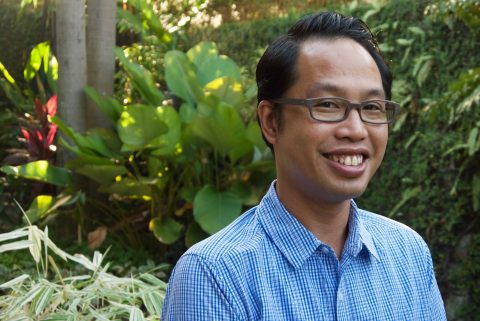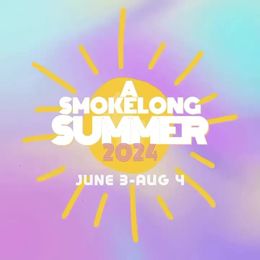I recently re-read the essay you published in Entropy about your reading life and literacy. One thing I found really interesting is that it seems geared up for you to go down the more traditional big reader path: books to English degree to MFA or PHD. But your doctorate is in Anthropology. What made you decide to go down that path? How do you think the skills you gained through that degree program has influenced your abilities to write character and setting?
I majored in communication with a lit emphasis when I was in college in the Philippines, and entered grad school in the US all ready to work on Filipino lit. But I fell down the rabbit hole of a dusty library and wrote a master’s thesis that was closer to history.
I didn’t know what to do next, and one of my mentors, the late Benedict Anderson, said I seemed temperamentally suited for anthropology. I’m still not sure why he thought that, but alas I can’t ask him anymore. But I was young and easily impressionable, so I took classes, applied to programs, and fell in love with the discipline, though in hindsight anthropology wasn’t the best fit for an introvert. But the basic things I learned in anthropology — seeing people as part of complex and sometimes contradictory wholes, viewing the familiar with a critical eye, questioning what we perceive as cultural norms, and most important, observing and joining people going about their everyday lives and listening to them tell their stories — were invaluable. Still, it took almost a decade after I received my PhD before I realized I tried writing something more literary.
One thing I was thinking about in relation to “Stone, Well, Girl” is how plot is the undercurrent of your piece. You have all this lyricism that cloaks the piece in a soft down. Yes, this is a story about an eleven year old girl who disappeared, probably drowned in the well. How did you decide on that style? Why did you decide to avoid the route a lot of writers might take (putting us directly in the most dramatic moments rather than a distant aftermath)?
I think that was simply the result of me not knowing what to do with the girl when I started writing; all I had was that first scene. But once I figured out what was going to happen — she was going to fall down a well — I just couldn’t see myself dramatizing the horrible events: the fall, the frantic search, her body is discovered, etc. I thought the three elements of the title would suffice. In hindsight, my avoiding all of that mirrored the narrator’s refusal to directly imagine or recall those dramatic moments.
My daughter thought the ending was too sad, so she painted a series of panels where the girl follows the stone down the well and finds herself in some magic underwater playground where she swims and dances with dolphins. Sometimes I wish I had her courage to imagine a happier ending.
What’s the best book you’ve read in the past year? Why?
In the last twelve months I read Between the World and Me and the Southern Reach trilogy and I can’t believe you’re making me choose just one. But I’ll choose Helen Macdonald’s H is for Hawk, which I read most recently. She achieves that “vivid, continuous dream” for non-fiction — an indescribably beautiful blend of supposedly “non-continuous” genres like memoir, history, literary criticism, and nature writing. It’s just amazing. (She signed my copy of her book at a reading in Berkeley and I had to put my hands behind my back so she wouldn’t see them shaking.)
What’s the best advice someone’s given you about writing? What’s the worst?
My writing teacher David Schweidel is full of great advice (“I try to put my characters in trouble early on,” “Write past the ending,” or “Memory and imagination live in the same house,” referring to creative nonfiction) and he told me: “Write every day, even if only for 30 minutes.” Not new advice to anyone reading this, but I heard it from David first. On days when I’m in a rush and I haven’t put in my writing time yet, I hear David’s voice in my head.
A confession: I’m afraid I’m not one of those people for whom writing is a burning compulsion. I can stop tomorrow and not return to writing, and I know this because I’ve been there.
I’ve been told many times to be okay about not writing. For me, that was the worst advice. I’ve skipped writing because I didn’t feel like it, and it just slipped into weeks and months. That’s when I discovered to my horror that it was far, far too easy for me to give it up, whether because of one rejection too many, or (even worse) the siren call of Candy Crush and Netflix.
Getting that writing done in the morning puts me in a receptive frame of mind all day. It turns me into something like a sponge, or an antenna. Being at work consumes over a third of my day but I’m constantly listening and looking out for things I can use. Come to think of it, anthropologists do that too.
I write every day partly because I’m afraid to stop. That’s why it works for me. I guess that kind of sounds like a burning compulsion.


 A SmokeLong Summer 24!
A SmokeLong Summer 24!